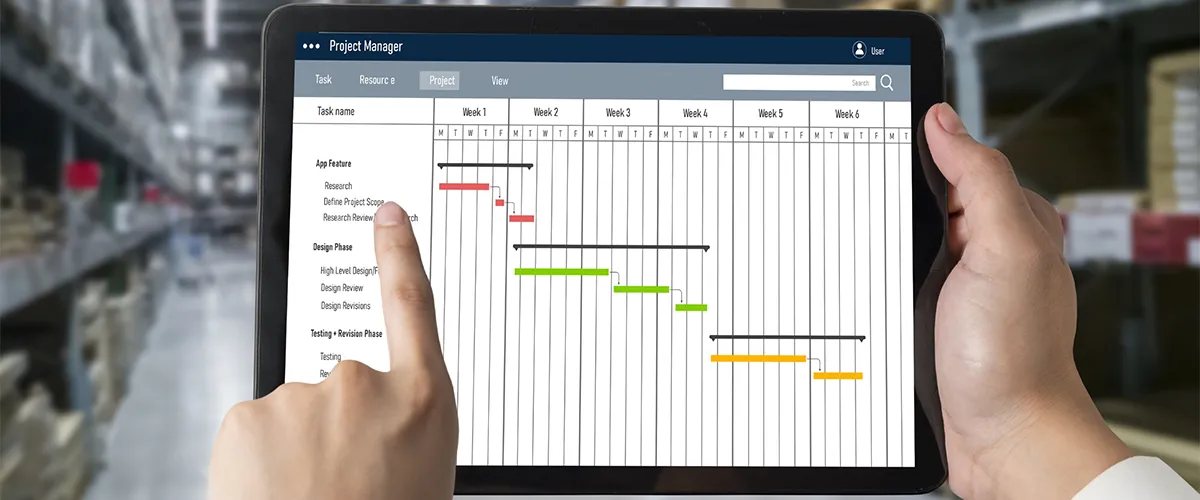
How to Improve the E-commerce Order Management Process?
In the last couple of decades, e-commerce has changed by leaps and bounds. Multi-channel strategies have become imperative for the success of e-commerce brands. It is no longer enough to just have a website or list in one marketplace. To reach more customers, you need to list on multiple websites, online marketplaces and mobile applications.
The need for an e-commerce order management solution is now more important than ever. To acquire and then retain customers through excellent service, including great shopping experiences, you need to have a superior order management process.
What is an e-commerce order management solution?
As the name suggests, an order management system helps you streamline and optimise your order management process. It is a unified interface through which you can control all the processes required to fulfil an order.
Once someone places an order in your store, that order needs to be processed. The item needs to be located in your warehouse inventory, packed, and made ready to ship. The shipment pickup needs to be booked through the logistics provider, and then the parcel needs to be handed over to the delivery partner. Apart from that, the customer needs to be updated about the progress in the order fulfilment process.
When dealing with a large volume of orders, the number of manual tasks required to fulfil the order will seem tedious and repetitive. Not only that, every single item will need to be catalogued and recorded. If there are any errors in updating your inventory, you might not even be able to fulfil certain orders.
To manage a high volume of orders, you need to have an e-commerce OMS. Through this system, all your orders get recorded in one common master dashboard. You can automate order packaging and logistics pickups.
Since you’ll be able to view all the information on one common interface, you will also be able to control and optimise every step of the process. This will reduce the order processing time, thereby facilitating a superior customer experience.
Why is it important to have an e-commerce order management solution?
From the moment an order is placed on an e-commerce store to the moment the order is handed over to the customer, there are several connected steps in between. We can broadly categorise these tasks under the following three heads: order processing, logistics, and customer experience.
Order processing
This includes everything that the warehouse must do to get the order ready to ship. For instance, the item must be taken out of the store, and the inventory must be updated. Then, the product must be packed, the shipping labels need to be printed, and the status must be updated at every step.
Logistics
This includes everything from booking the shipment to handing the shipment over to the courier person. In most cases, logistics can be handed over entirely to third-party service providers. All you need to do is book the shipment.
But even then, if there are any issues or if the package does not get delivered for any reason, you will have to get involved and find manual solutions.
Customer experience
This includes all the updates the company provides to the customer. It is ideal to keep them in the loop, without spamming them with too many notifications.
Now, it takes a lot for order fulfilment management. You have to complete all of these small tasks as fast and as smoothly as possible. But anytime we use manual intervention for repetitive tasks, we open up the possibility of inaccuracies and errors.
And then if you add the complications of multi-channel e-commerce, manual intervention goes out the window.
Imagine having to complete all the above steps for orders coming in from multiple websites and apps, as well as direct orders on social media. You might even have some conventional retail outlets to add to the mix.
How to choose an e-commerce order management solution?
There are several factors to consider. Some of the most important ones are:
Does it offer omnichannel integrations?
This is one of the most important things to consider with an e-commerce OMS. If you have a multi-channel e-commerce strategy, or if you want to implement a multi-channel strategy in the future, make sure the order management system you choose offers integrations.
Is it scalable?
It is ideal to choose an e-commerce OMS that can scale with your business. As a large-scale e-commerce brand or reseller, you need a solution that can handle millions of orders across extensive product categories and geographies and help you manage their fulfilment seamlessly. Otherwise, you’ll have to shift to a new OMS when your business grows, and that can be very tedious.
Does it offer automation?
It is ideal if your e-commerce OMS has automated workflows. The more, the better.
Some e-commerce order management solutions can be customised to suit your preferences and requirements. For instance, you can sync your logistics providers and book orders directly within the master dashboard. Sometimes, you might be able to automate the entire order fulfilment process. From the booking of the shipment to the email updates, everything can be set up and automated within the e-commerce OMS.
It is ideal to opt for a full-service e-commerce order management process that can scale with your business and can handle any omnichannel strategy you throw its way. The OMS should be able to support your business.
Looking to streamline your multi-channel e-commerce order management processes and access data more seamlessly? If so, you’re in the right place! Ordazzle is an e-commerce management platform with a built-in all-in-one order management solution that helps B2C and D2C businesses maximise order management and fulfilment efficiencies, and in turn, their revenues. Speak to our experts today for a consultation!


